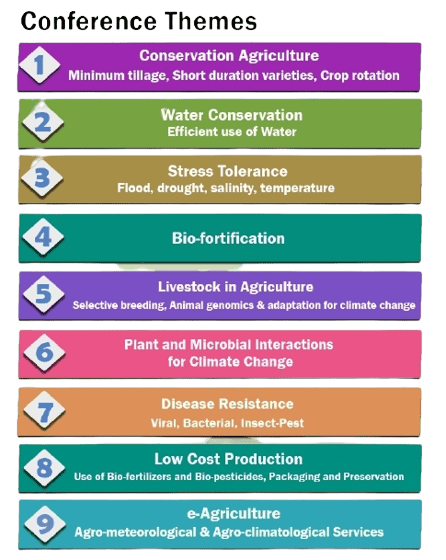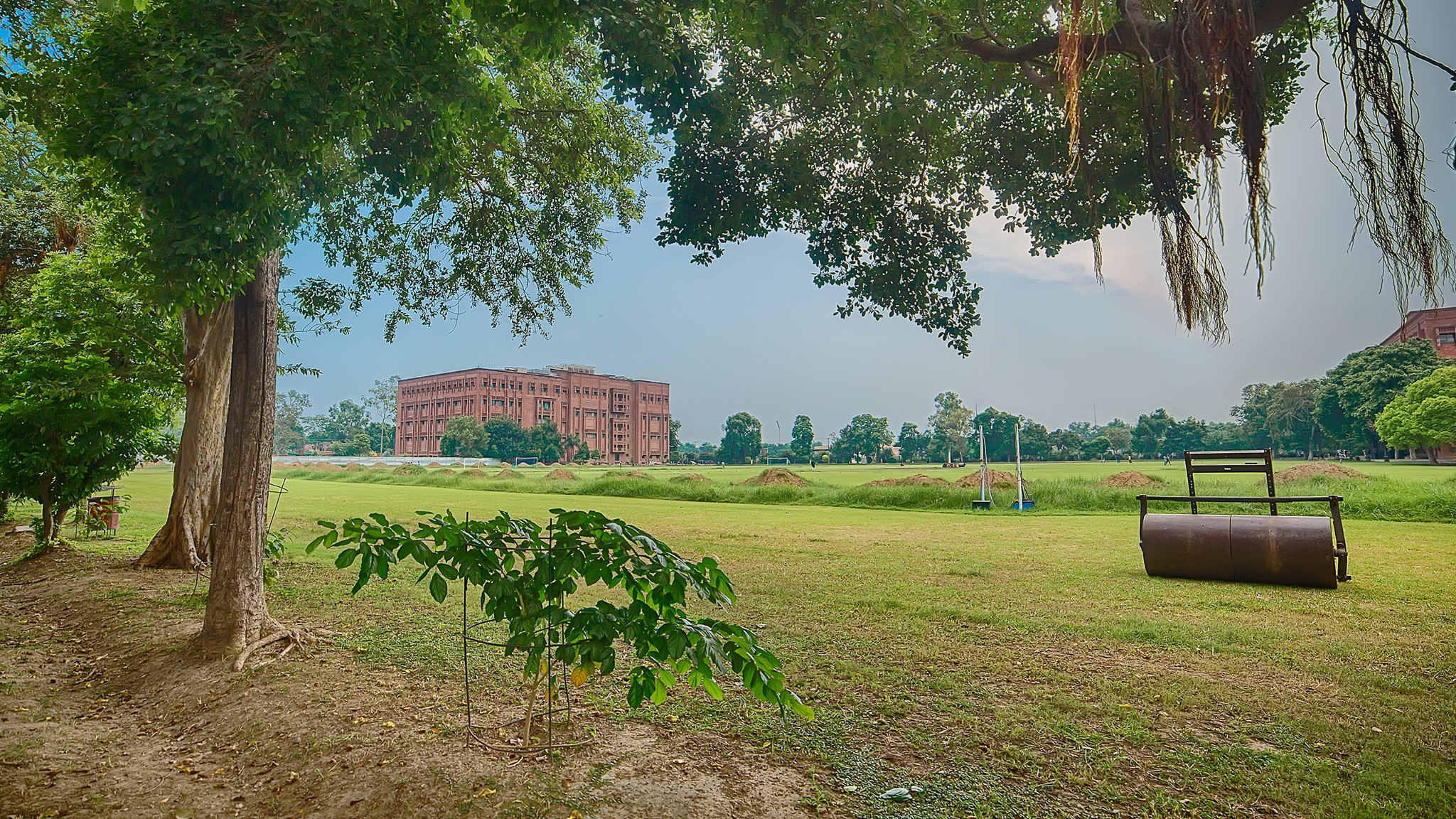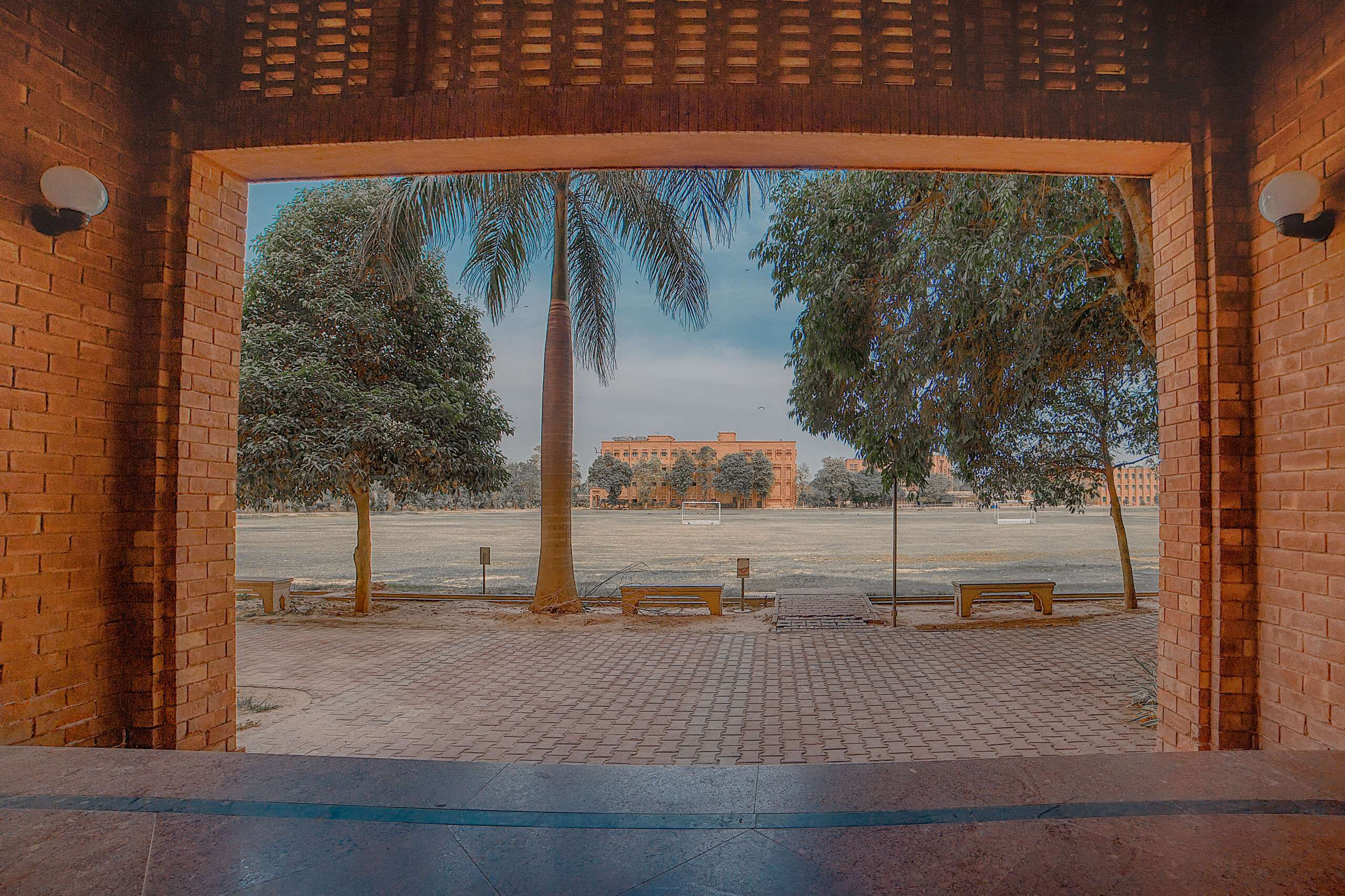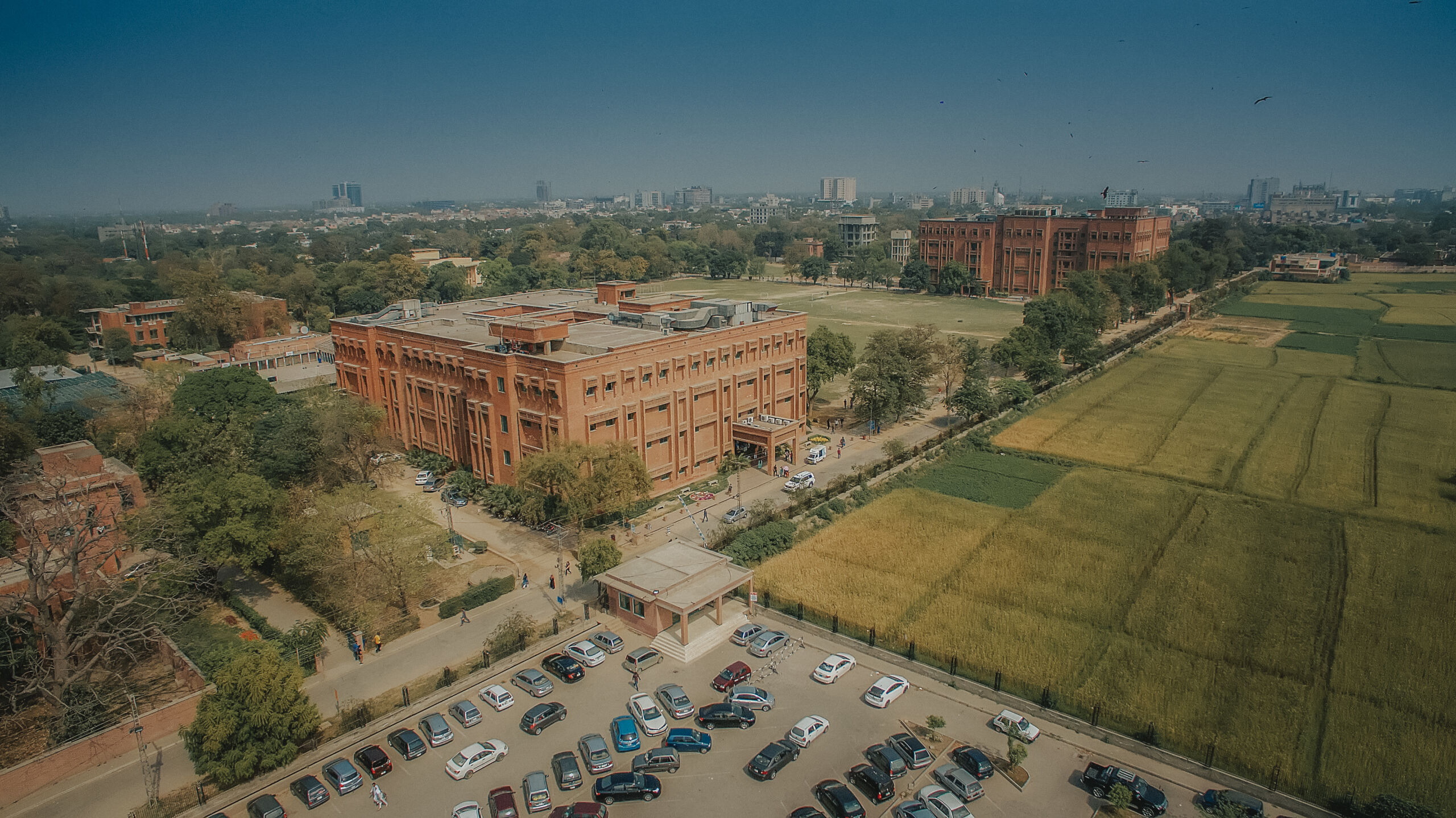The climatic crisis around the globe has been an increasing and alarming threat to world’s ecology. Pakistan’s multilayered climate concerns include erratic rainfalls, receding of glaciers, abrupt floods, reduced hydropower generation during drought years, a decrease in the capacity of water reservoirs and an increase in food insecurity. According to the German watch’s Global Climate Risk Index Pakistan stands at the 8th position among the ten most vulnerable countries affected by catastrophes of climate change.
Natural disasters, economic instability, and militancy have challenged food security in Pakistan over the years, despite significant increases in staple crop yields. Pakistan ranks 78th out of 113 countries in the Global Food Security Index, with more than half of the population (60%) experiencing food insecurity. These conditions have amplified in the aftermath of the disastrous floods this year where 30 million people are left with no food. The floods damaged standing crops including cotton, maize, sugarcane, oil seeds and seasonal pulses spreading over million of hectares of land, this will eventually make food insecurity conditions worsened in the country.
Agriculture in Pakistan is significantly affected by short-term climate variability and longer-term climate change. Periods of severe droughts, followed by devastating floods are common in the country and have contributed to low crop yields, loss of livestock, damage to irrigation infrastructure and food shortages. Projections indicate an increase in mean temperature of 1.4 – 3.7 degrees Celsius by 2060 in Pakistan which is higher than the expected Global average. This will likely speed up crop growth cycles and shorten the time between sowing and harvesting, affecting crop yields. According to the Climate change Index, droughts will increase in winter affecting the yield of cash harvests. Meanwhile, increase in precipitation in the summer season may cause floods throughout different areas of Pakistan.
This is high time that Pakistan adopts Climate smart Agricultural technologies such as e- agriculture (agro-meteorological and agro-climatological services); conservation agriculture (minimum tillage, short duration varieties, crop rotation); stress tolerance (flood, drought, salinity, temperature); Biofortification; Plant and Microbial interactions for climate change; Livestock for Agriculture; disease resistance (viral, bacterial, insect-pest); water conservation; and low-cost production, packaging, Preservation, Use of Bio-fertilizers and Bio-pesticides.
National Organizing Committee
Dr. Kauser Abdulla Malik
Director ORIC / Dean Postgraduate Studies
Forman Christian College University (FCCU)
Dr. Yusuf Zafar
Vice President
Pakistan Central Cotton Committee (PCCC)
Dr. Iqbal Choudhary
Coordinator General, COMSTECH
Dr. Shahid Mehmood Baig
Chairman
Pakistan Science Foundation (PSF)
Dr. Ghulam Muhammad Ali
Chairman
Pakistan Agricultural Research Council (PARC)
Dr. Talat Naseer Pasha
Vice Chancellor
The University of Education
Dr. Nasim Ahmad
Vice Chancellor
University of Veterinary and Animal Sciences (UVAS)
Dr. Iqrar A. Khan
Vice Chancellor
University of Agriculture Faisalabad (UAF)
Dr. Bushra Mirza
Vice Chancellor
Lahore College for Women University (LCWU)
Dr. Habib Ali Bokhari
Vice Chancellor
Kohsar University Murree
Dr. Abid Mahmood
Chief Executive
Pakistan Agricultural Research Board (PARB)
Dr. Zahid Mukhtar
Director
National Institute of Biotechnology and Genetic Engineering (NIBGE)
Dr. Qurat ul Ain Asad
Director General
Pakistan Council of Scientific and Industrial Research (PCSIR) Lahore
Dr. Kausar Malik
Director
Centre for Excellence in Molecular Biology (CEMB)
Dr. Zabta Khan Sherwani
Professor Emeritus – National Distinguished Professor
Faculty of Biological Sciences
Quaid-i-Azam University
Dr. Ikram ul Haq
Professor Emeritus – National Distinguished Professor
Institute of Industrial Biotechnology (IIBT)
Government College University Lahore
Dr. Farhan ul Haq
Assistant Professor
School of Biological Sciences
University of the Punjab
Local Organizing Committee
Patron in Chief
Dr. Jonathan Addleton
Rector, FCCU
Dr. Douglas Trimble
Vice Rector, FCCU
Dr. Hassan Amir Shah
Dean, Faculty of Natural Sciences FCCU
Dr. Saeed Shafqat
Director, Centre for Public Policy and Governance (CPPG) FCCU
Dr. Derk Bakker
Chairperson
Department of Environmental Sciences FCCU
Dr. Muhammad Arslan
National Distinguished Professor, KAM-SLS FCCU
Former Vice Chancellor, Quaid-i-Azam University
Dr. Mian Wajahat Hussain
Professor, KAM-SLS FCCU
Dr. Rehan Siddiqi
Professor Emeritus, KAM-SLS FCCU
Dr. Aftab Bashir
Professor, KAM-SLS FCCU
Dr. Asma Maqbool
Professor, KAM-SLS FCCU
Dr. Muhammad Irfan
Professor, KAM-SLS FCCU
Dr. Muhammad Imran
Associate Professor, KAM-SLS FCCU
Dr. Bilal Sadiq
Associate Professor, KAM-SLS FCCU
Dr. Shinho Chung
Associate Professor
Department of Environmental Sciences FCCU
Dr. Iahtisham ul haq
Assistant Professor, KAM-SLS FCCU
Dr. Shazia Ilyas
Assistant Professor
Department of Environmental Sciences FCCU
Dr. Sohaib Aslam
Assistant Professor
Department of Environmental Sciences FCCU

You are invited to submit your abstract to the International Conference on Mitigation and Adaptation for Climate Change: Focus on Agriculture and Food Security, 6-9 Feb 2023 at FCCU, Lahore. Please send your abstract for evaluation by the Organizing Committee and if the abstract is accepted, it will be published in the Abstract Book.
You can submit your Abstract for Oral/Poster Presentation at macc2023@fccollege.edu.pk
Please specify the mode of presentation (Oral/Poster) at the time of submission.
Abstract Format
Author’s Name(s) (Full Name(s))
University/ Institute
ABSTRACT
An abstract is a single paragraph, without indentation, that summarizes the key points of the manuscript in 150 to 250 words. An abstract is a single paragraph, without indentation, that summarizes the key points of the manuscript in 150 to 250 words. An abstract is a single paragraph, without indentation, that summarizes the key points of the manuscript in 150 to 250 words. An abstract is a single paragraph, without indentation, that summarizes the key points of the manuscript in 150 to 250 words. An abstract is a single paragraph, without indentation, that summarizes the key points of the manuscript in 150 to 250 words. An abstract is a single paragraph, without indentation, that summarizes the key points of the manuscript in 150 to 250 words. An abstract is a single paragraph, without indentation, that summarizes the key points of the manuscript in 150 to 250 words. An abstract is a single paragraph, without indentation, that summarizes the key points of the manuscript in 150 to 250 words. An abstract is a single paragraph, without indentation, that summarizes the key points of the manuscript in 150 to 250 words.
*Please provide 5 key words in alphabetical order separated with semicolons, not included in the title.
Keywords: writing; template; sixth; edition; self-discipline
Deadline: 31st December 2022
Conference Abstract Book
All accepted and registered abstracts will be published at the Conference Abstract Book.
The Abstract Book will be available on the conference.
The conference management follows strict anti-plagiarism policies. All abstracts submitted to the conference first undergo a plagiarism check before being sent to our organizing committee for review. The submission will be automatically rejected at any time if found plagiarized.
Registration Fee:
- Students/Researchers: 3000 Pkr
- Faculty/Industry Representatives: 5000 Pkr
- International Participants: 500 USD
Conference registration fee Includes:
- Admission to all sessions
- Admission to poster exhibition
- Conference Kit, Abstract Book
- Certificate of Participation
- Daily Refreshments
- Accommodation for International Participants
- City tour
Accommodation
Accommodation for International Participants is included in the conference registration fee.
Accommodation for local participants from outside Lahore can be arranged on request with additional charges.
 Forman Christian College was founded in 1864 by Dr Charles W Forman, a Presbyterian missionary from the USA. The college was initially known as the Lahore Mission College, but in 1894 the name was officially changed to Forman Christian College in honor of the founder. In the early years, degrees were awarded through the Calcutta University. College level instruction was interrupted in 1869 due to the illness of key faculty members. College classes resumed in 1886, with degrees being awarded through the University of the Punjab. In 2004, FCCU became a chartered University and from 2009 onwards has awarded its own degrees.
Forman Christian College was founded in 1864 by Dr Charles W Forman, a Presbyterian missionary from the USA. The college was initially known as the Lahore Mission College, but in 1894 the name was officially changed to Forman Christian College in honor of the founder. In the early years, degrees were awarded through the Calcutta University. College level instruction was interrupted in 1869 due to the illness of key faculty members. College classes resumed in 1886, with degrees being awarded through the University of the Punjab. In 2004, FCCU became a chartered University and from 2009 onwards has awarded its own degrees.
The early years of the college were marked by rapid growth in enrollment, and a constant struggle to find enough space to house the growing college. Enrollment grew from 18 students in 1886 to 130 in 1890, 311 in 1900, 426 in 1910 and 600 in 1915. Enrollment had reached 1,500 students by the time the college was nationalized in 1972. The campus was in the Anarkali (Nila Gumbad) area of Lahore for many years. Four major buildings were constructed by the college on that campus by 1916, and Ewing Hall, built in 1916, is still used as a hostel by the college. In 1940 the college moved to its present spacious campus of over 100 acres on the scenic banks of Lahore Canal.

In 1972 the college was nationalized by the government. It was returned to the present owners of the college on 19 March 2003. In March 2004, the government granted University status to FCCU. The University embarked upon an exciting new stage in its history in September 2005 when it began a four-year Baccalaureate (Honors) program designed in accordance with world-class standards for accreditation.
FCCU has been served by many distinguished educational leaders and teachers throughout its history who have impacted the lives of students and shaped the future of the college through the years. Under their leadership, the college became widely regarded as one of the very best in the entire subcontinent.
For many decades, FCCU has been widely recognized for its meritorious work of nurturing and consolidating the social and intellectual capital of Pakistan. The FCCU motto, “By love serve one another,” has been a guiding principle for Formanites throughout the history of the college. Among the graduates of the college are two Presidents of Pakistan, a Prime Minister of India, the first Chief Justice of Pakistan, a number of Governors and Chief Ministers of the Punjab and other provinces, an Attorney General of Pakistan, two Foreign Ministers of Pakistan, a President of the Security Council of the United Nations, numerous Ambassadors to other nations, a Chairman of the Atomic Energy Commission, a Chairman of the Senate, several Speakers of the National Assembly, numerous Generals and Admirals and an equally impressive list of leaders in the fields of education, law, medicine, arts and entertainment.
FCCU has been a leader for the development of curriculum among the universities of Pakistan. Through the years the college introduced into the curriculum such subjects as the Sciences, Economics, Psychology, Geography, Technical Chemistry and Sociology. FCCU is the first college in the subcontinent in whose laboratories research work of Nobel Prize caliber was conducted and Dr Arthur Compton received the Nobel Prize in 1932 for research conducted, in large part, at FCCU. In 1902, the college was the first college in the Punjab to admit women.
FCCU has been a pioneer in many fields. We were the first college in the region to form a Graduates’ Association (1896), open a Biology department (1898), adopt Co-education (1902), open a Technical Chemistry department (1919), and start Geography classes (1924).
Our innovative ideas are applicable to this day.
Academic excellence and the preparation of leaders who understand the value of service have been the hallmarks of education at the institution since its inception. One of the premier colleges of the subcontinent, FCCU has distinguished itself through its remarkable graduates and the achievements of its faculty. It has built a reputation for providing outstanding education with innovation and pioneering work in its curriculum, admission policies, a range of extracurricular activities, and the rigor of its academic programs.
FCCU is an HEC-recognized, W-category University. It currently has over 7,000 students, over 250 full-time faculty members with over 100 PhDs, and over 22,000 registered alumni. The University offers Baccalaureate and Postgraduate programs. The 4-year Baccalaureate Honors program, started in 2005, offers an American style, world-class liberal arts education. New postgraduate programs started with the MBA in 2007 and now include PhDs, MPhils, Masters and Executive education programs in specific disciplines. FCCU’s generous financial aid program and scholarships for deserving students make high-quality education accessible to students from various socioeconomic backgrounds.
With the merger of the Botany and Zoology departments, the Department of Biological Sciences emerged at FCC in the year 2006. The department initiated undergraduate and graduate degree programs in biological sciences, biotechnology, and environmental sciences in 2008 and 2009 respectively. Over the years, the department expanded with qualified and competent faculty, state-of-the-art equipped labs for research, diverse courses, multidisciplinary and interdisciplinary research projects, and linkages with industry. It was upgraded to the School of Life Sciences in 2019. Through the rigorous teaching and arduous pioneering of a great number of distinguished Professors including Dr. Kauser Adulla Malik, Dr. Samina Mehnaz, and Dr. Muhammad Arslan, and the diligent efforts of a large number of young faculty members, the school has made improvement in conducting research and teaching by improving the overall infrastructure of the School.
After years of growth and development, the School of Life Sciences has won a distinguished position in the scientific research community and become one of the important institutions for life sciences in Pakistan. Our faculty has been able to win competitive research grants worth nearly 150 million Rupees over the last 10 years. The School of Life Sciences at FCCU is visualized as a hub for providing the right combination of academics and research. It has the facilities and infrastructure to undertake research in advanced Agricultural, Food, Microbial and Medical biotechnology using all the developments in genomics, proteomics, transcriptomics, metabolomics, and phenomics to solve the real-world problems of health, food and agriculture.
The school has been named after Prof. Dr. Kauser Abdulla Malik in 2020. He joined the school in 2008 and since then has been an integral part of it. Dr. Kauser Abdulla Malik is HEC National Distinguished Professor and has been presented many prestigious awards by the Government of Pakistan for his services in the field of Agriculture and Biotechnology including Hilal-e-Imtiaz, Sitara-e-Imtiaz, and Tamgha-e-Imtiaz. He has 300 plus publications to his name and been associated with many Government and Research Organizations including PAEC, NIAB, NIBGE, PARC as its Chairman and Planning Commission of Pakistan as its Member Food & Agriculture. In the light of his vast experience, expertise in research, and guidance, the school has grown to be one of the best options to pursue a Life Sciences degree. He has been guiding research of several PhD students in the area of Plant Biotechnology and Plant-Microbe Interactions. Currently, he is serving as Professor and Dean of Post-graduate studies and Director ORIC at FCCU.
The Chairperson of KAM-SLS is Dr. Samina Mehnaz. Over 31 years of research and more than 12 years of teaching in Pakistan, North America, and Europe; Served as Junior and senior-level researcher for 10 years at NIBGE, Faisalabad; 8 years of Pre and Post Doctorate Fellowships in the USA, Canada, Belgium, and Germany; She has 70 plus publications to her name. Dr. Samina is the first Alexander von Humboldt Ambassador Scientist of Pakistan. Her research is contributing to new and improved methods for not just safe and healthy farming but also finding new avenues for the cure of Human diseases. She is the co-editor of ‘Environmental Sustainability (Springer Nature since 2017); editor of ‘Archives of Phytopathology and Plant Protection (Taylor & Francis, UK since 2015) and Associate Editor of ‘Frontiers in Microbiology. She has been declared an ‘outstanding editor’ for ‘Archives of Phytopathology and Plant Protection. She has also been ranked among the top 1% of reviewers in the global reviewer’s database by Publons Academy USA.
The KAM- School of Life Sciences covers an area of 65,500 square feet within the Armacost Science Building. In addition, it has a botanical garden on the east side of the campus covering about 7 acres. The school programs are supported by 22 competent, well-qualified, and enthusiastic faculty members (all PhDs) and 15 scientific assistants. It has 12 research laboratories associated with 8 dedicated and 18 accessible lecture rooms. The research labs are well equipped with modern and advanced research equipment including HPLC, GC, Bio-fermenter, Nanodrop, Gel documentation system, Freeze dryer, Rotary evaporator, ELISA Reader, Gel Electrophoresis, FPLC Akta, Fluorescent Microscope, and TLC documentation system. The research and teaching facilities are supported by a greenhouse, two climate rooms, a one acre agricultural field for experimentation on the campus, a natural history museum, a herbarium, and a seminar room.
The school offer BS Programs (Four-year degree) in Biotechnology and Biological Sciences. MPhil which is a two-year Postgraduate degree program has been offered in Biotechnology; Food Safety and Quality Management; and Molecular Pathology, and Genomics. The KAM-School of Life Sciences is also offering a Ph.D. degree in Biotechnology and has many enthusiastic Ph.D. scholars enrolled in the program. Our postgraduate students are the main players involved in innovation and scientific pursuits. Research is being conducted on Microbiome profiling of Cotton, developing Herbicide-resistant Wheat, Bio-fortification, Bio-fertilizer, Drought and Salt tolerance in Wheat, Bio-pesticides, Bacterial Metabolites, Autism, Neurological disorders, Obesity, Molecular Oncology, Trans genders, Bio-markers, Epi-genetics, Human Papilloma Virus, Tuberculosis, Gluten free products, Food preservation, Starch modification, Bioactive compounds from food byproducts and production of fruit leather.
The KAM-School of Life Sciences is incredibly proud of its Alumni. Our graduates are successfully working in public and private sector institutes/companies including Pakistan Food Authority, Pakistan Dairy Association, Pakistan Biotechnology Information Center, Punjab Forensic Science Agency, Pakistan Agriculture, Food and Drug Authority (PAFDA), Four Brothers Group of Companies, Chughtai Diagnostic Laboratories, Shaukat Khanam Diagnostics Labs and WWF. One of our brilliant alumni is also serving as a Diplomat at Foreign Services of Pakistan in the Science and Diplomacy wing. Our Doctorates are teaching in different well reputed educational institutes of Pakistan including, University of Central Punjab, University of Agriculture Faisalabad, and Ruth Pfau College of Life Sciences. Our first PhD graduate has been awarded Post-Doctoral fellowship in USA.
With the help of well-qualified faculty, dedicated staff, bright undergraduate students and astute postgraduate scholars, the KAM-School of Life Sciences strives to improve life by stimulating scientific discovery and solving critical problems at the intersection of the life sciences and society by pushing the boundaries of knowledge, investing in diversity, creating synergy, pursuing excellence, and serving our community.

Lahore houses several historical places like Badshahi Mosque, Lahore Fort, Greater Iqbal Park and several food streets. The Walled City of Lahore was renovated in 2014 and the fort along with the Shalimar Gardens has been a UNESCO World Heritage Site since 1981.
The city is home to several ancient religious sites including prominent Hindu temples, the Krishna Temple and Valmiki Mandir. The Samadhi of Ranjit Singh, also located near the Walled City, houses the funerary urns of the Sikh ruler Maharaja Ranjit Singh. The most prominent religious building is the Badshahi Mosque, constructed in 1673; it was the largest mosque in the world upon construction. Another popular site is the Wazir Khan Mosque, known for its extensive faience tile work and constructed in 1635.

Post Conference tour of the city will be organized for the participants.

The Conference will be held at the beautiful campus of the Forman Christian College University (FCCU) Lahore, Pakistan, which is more than 160 years old institution. The University is located in the heart of Lahore, which is the cultural capital of Pakistan and 15 minutes driving distance from the main shopping center.
Ferozepur Road, Lahore 54600, Pakistan
Please email at macc2023@fccollege.edu.pk to get Letter for Visa Services.
